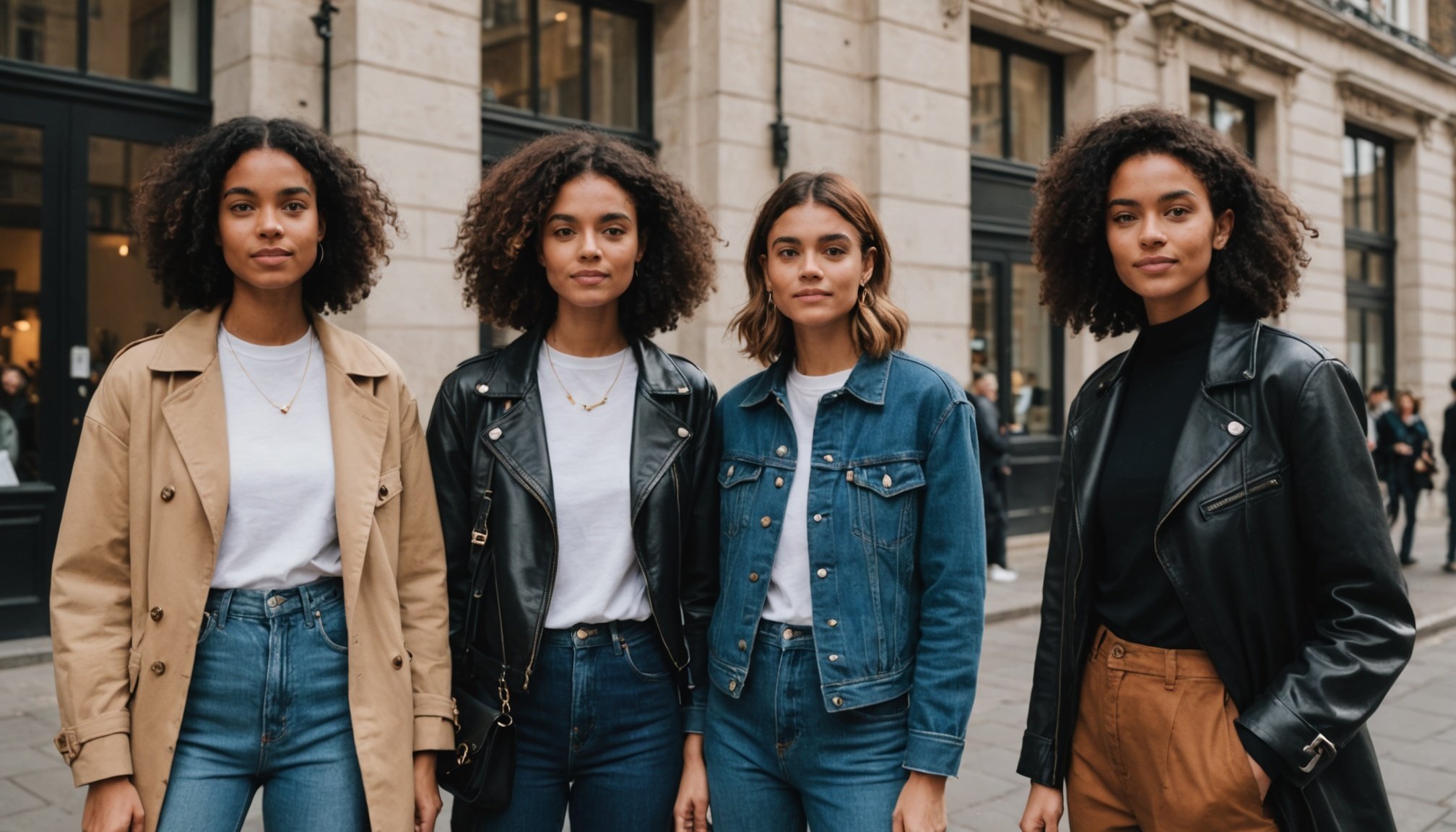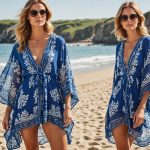Overview of Ethical Fashion and Its Appeal to UK Millennials
Ethical fashion has become a prominent choice among UK millennials, driven by a significant shift towards sustainability. Ethical fashion refers to clothing produced under practices that minimise environmental impact and ensure fair treatment for workers. This approach is gaining traction as consumers become more aware of the impact of fast fashion on both society and the environment.
UK millennials, in particular, are markedly more inclined towards brands that adopt sustainable practices. This demographic values transparency in production processes and prioritises companies that showcase a commitment to ethical standards. This trend is propelled by a growing consciousness about environmental conservation and social responsibility.
Also to discover : Unveil the perfect dress cuts: find your ultimate flattering style for every body shape!
The role of sustainable practices in consumer decision-making cannot be underestimated. Millennials are discerning shoppers who assess brands not just on style, but also on how responsibly products are manufactured. This includes consideration of factors such as material sourcing, waste reduction, and energy consumption.
The shift towards ethical fashion signifies a broader change in consumer expectations, where sustainability becomes intrinsic to brand loyalty. Companies that align their values with these ethical imperatives are better positioned to capture the interest and spend of millennials in the UK market, setting a precedent for future generations.
Also to see : Elevate your basic t-shirt: trendy london outfit inspirations for effortless style
Top Ethical Fashion Brands for UK Millennials
Ethical fashion has captivated UK millennials, prompting a surge in interest for brands that align with sustainable ideals. Recognising this shift, many companies now embrace practices that resonate with this demographic.
Brand 1: [Brand Name]
Mission Statement and Core Values: At its heart, the brand champions social responsibility, emphasising transparency in its processes.
Sustainability Practices and Materials Used: Known for sourcing organic cotton and recycled materials, the brand minimises waste and reduces its carbon footprint. The use of eco-friendly dyes and energy-efficient production techniques further underpins their commitment.
Unique Selling Points Appealing to Millennials: Millennials are drawn to the brand’s modern designs that marry style with ethics. The clear documentation of its supply chain gives consumers assurance of its genuine sustainability efforts.
Brand 2: [Brand Name]
Mission Statement and Core Values: Dedicated to innovation in ethical fashion, the brand prioritises ethical labour practices.
Sustainability Practices and Materials Used: Using upcycled fabrics and investing in renewable energy, the brand exemplifies a forward-thinking approach. Their initiatives to conserve water resources set them apart.
Unique Selling Points Appealing to Millennials: The brand attracts millennials with its adventurous designs and eco-conscious message, inspiring a sense of community through collaborative projects with artisans around the world.
These ethical brands exemplify the marriage of sustainability and style, capturing the essence of what UK millennials value in their fashion choices.
Consumer Testimonials and Reviews
When it comes to ethical fashion, UK millennials are vocal about their preferences, often sharing insights that reflect a broader trend towards sustainability. Consumers frequently highlight how ethical commitments from brands directly influence loyalty, creating long-term trust and relationships. Many testimonials recount positive experiences, underscoring collective enthusiasm for sustainable practices adopted by their favourite brands.
For instance, a growing number of millennials express high regard for transparency in production processes, which bolsters their confidence in making purchases. Shoppers are encouraged by visible and verified commitments to humane working conditions and eco-friendly manufacturing. Consequently, brands that excel in these areas are often rewarded with heightened brand loyalty and advocacy, shared through word-of-mouth and personal stories.
The emotional connection fostered by ethical brands further underscores their impact on personal choices. Customers reveal a deeper sense of satisfaction, knowing their purchases contribute positively to social and environmental causes. Such stories often spotlight how ethical fashion aligns with personal values, fostering an environment where style meets responsibility.
In conclusion, as customers continue to champion sustainable fashion, their feedback loops back into brand processes. This ongoing exchange shapes and reshapes consumer dynamics, steering the ethical fashion movement forward.
Comparative Analysis of Ethical Fashion Brands
In the world of ethical fashion, making informed choices is increasingly crucial. Understanding how brands stack up against one another in terms of sustainability and ethical commitments can guide UK millennials in their purchasing decisions. Precision in evaluating brand comparison involves distinct metrics that provide clarity.
Overview of Comparison Metrics
Key factors in the ethical fashion chart include transparency, sustainability practices, labour conditions, and material usage. Transparency ensures that consumers have a clear line of sight into how products are made. Accountability reinforces a brand’s commitment to these practices, offering consumers assurance in their investments.
Comparison Chart of Key Brands
A sustainability ranking visually encapsulates how brands perform, highlighting their strengths and weaknesses. For instance, a brand with high transparency and ethical labour practices might score well, while another excelling in innovative sustainable materials might shine in reducing waste.
This comparative approach empowers consumers to discern the most environmentally responsible option, thereby aiding in building brand loyalty based on well-founded ethical standings. Such analysis serves UK millennials in aligning their purchases with their values, advancing broader sustainable fashion trends.
Purchasing Options and Resources
In the realm of ethical fashion, understanding where to buy and how to support responsible brands is essential. UK millennials are increasingly seeking ethical shopping platforms to enhance their purchasing power.
Consumers have diverse purchase options through dedicated platforms and marketplaces that bolster sustainability. Online marketplaces like ASOS Eco Edit and People Tree offer an inclusive range of ethical brands. These platforms ensure transparency by showcasing brands committed to ethical production, providing consumers with confidence in their choices.
Additionally, direct purchase options are available through the brands’ websites. Many ethical brands have invested in creating user-friendly online stores that highlight their sustainable practices and materials. This direct approach not only encourages transparency but also allows consumers to engage more intimately with the brands.
Supporting ethical fashion is not just about the products; it’s also about the impact. By choosing ethical shopping platforms, consumers contribute positively to social and environmental causes. Moreover, these platforms often operate with fair trade principles, ensuring that your purchases support sustainable and humane practices globally.
Engaging with ethical fashion means making informed decisions and utilising resources that align with personal values. By prioritising such options, consumers play a pivotal role in advancing the ethical fashion movement, cementing its appeal among future generations.
Making Informed Ethical Fashion Choices
Navigating the world of ethical fashion requires guidance akin to an ethical fashion guide. Evaluating the ethics of fashion brands involves scrutinising their supply chain transparency and environmental practices. Consider if a brand embodies sustainability by investigating their material sourcing and production techniques. Brands that provide detailed reports and independent certification demonstrate a commitment to ethical standards.
To shop responsibly, look for brands highlighted with positive ethical fashion reviews. Consumer feedback can offer invaluable insights; pay attention to anecdotes that stress ethical commitments. Community endorsements amplify trust and affirm the brand’s genuine focus on sustainable practices.
For those keen on making informed decisions, online resources are abundant. Blogs, platforms, and organisation websites delve into brands’ environmental and social practices. Research these channels to uncover truthful depictions of a brand’s ethics, enhancing your ability to engage with and promote ethical consumption.
Transitioning to an ethical wardrobe can be simplified with strategic steps. Start small, incorporating one ethical brand at a time. Align purchases with your values by prioritising well-documented ethical brands. This gradual approach ensures a seamless adaptation while encouraging a lifestyle of sustainable fashion choices that resonate with personal principles and societal well-being.








